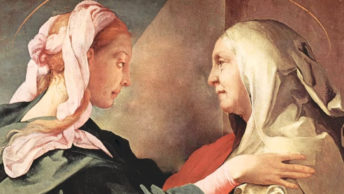At a local restaurant before the end of 2013, we met a young server, a 24-year old woman who had spent the last few years living in New York City. She had gone there to write the great American novel. She proceeded to tell me about her story, set in Montana, which was a love relationship between a woman of Hopi Indian decent and her Caucasian husband. Unfortunately I don’t remember any of the manuscript’s details except that she did not have any title for it.
The next year, I was reading one of the novels written by local author Philip R. Craig I had purchased during our summer trip to Martha’s Vineyard. In Vineyard Prey Craig wrote at length about the Hopi Indians and their idea of time. The Hopi language does not have any words for small segments of time, such as seconds, minutes or hours.
It has only a few mysterious concepts about time: events were not happening anymore, were still happening or may happen in the future. They also held that people are no longer fixed in time or place. Craig’s protagonist, J. W. Jackson opined it was a good language to hide in with perfect honesty. I passed all this on to the aspiring young novelist, thinking she might be able to conjure a title out of it.
In discussing her idea with my younger son, he taught me about the difference between Chronos and Kairos. Chronos means living by the clock. I understand this to mean always being manipulated by appointments, schedules etc while Kairos measures time not in seconds and minutes but in moments, which may be brief or last a long time.
Chronos has been the ruler of my life for too long. My mother had me early for every date, appointment or event that I was scheduled to attend. I wish I had had the foresight and understanding to have treasured those countless wasted moments. Now in my vintage years I realize a wasted moment is a lost moment…gone for eternity. I had wasted one of God’s increasing more precious gifts.
This is not to say that living by Chronos is a bad thing. For millions of adults it is a superior way to function in a fast-driven society. It is also the best way to stay gainfully employed. However, too much of even a necessary thing can lead to rigor mortis of the soul where one never really enjoys his sojourn on this earth and quite frankly in my case enjoys events after they have happened. That’s why my memories have become so important to me as I have entered the uncharted waters of growing old.
My son also mentioned the idea of living in the moment…not after it. I will admit that anticipation of a moment can be exhilaration…only if it is not accompanied by an anxiety about the moment failing to live up to its promise or expectations.
In Véronique Vienne’s short book, In The Art of the Moment, she explores ways to get the most from life, one moment at a time. Her signature essays—short and sweet, yet insightful—are invitations to appreciate the uniqueness of each moment. She tells us to feel the excitement of being here right now! She encourages her readers to savor the fullness of life in brief, joyful installments. Don’t wait for a second chance to get it right. Each moment is both the last time and the first time because no two days are ever alike.
Each brief chapter in her book is a reminder that time is not running out. One does not have to rush to experience a sense of joy, wonder, and adventure. It is there for the taking, whenever one is ready for it. Anyone can claim the now while washing the car, taking a child to volleyball practice, buying a new pair of shoes, or daydreaming about opening a small bookstore across the street from the hardware store.
Of course few people make a living in or for the moment. Moving to Colorado and joining a community of Lotus Eaters would only turn the moment into a life of neglect, idleness and debauchery. Socrates taught that moderation must govern our affairs, even in our seizure of the moment. The self-edifying act of smelling the roses, relishing spontaneity, random adventures and sharing one’s vitality with random strangers cannot be the driving force of a life with true meaning.
It is a truism that one can raise each moment to a higher plane than its Horacian imperative to seize the moment and suck out the marrow of life as Robin Williams’ character in The Dead Poets Society professed. As the Catholic prayer The Morning Offering proclaims, we can sanctify one’s daily actions, thoughts and feelings by offering them to God in thanks of the precious gift of each new moment.
A friend recently introduced me to some of the ideas of the highly controversial Franciscan monk, Richard Rohr. While some of his ideas on God as Universal Consciousness seem way off the Catholic radar, his persistent attempts to penetrate the mystical truths of the Catholic faith are an invitation to take one’s faith to a much higher level.
His writings are deep and may even border on the mystical. But for a novice without any historical, metaphysical or theological background, they can easily lead someone grievously astray. As Dante had his Aeneas and later his idyllic Beatrice to guide him through the nether world of eternal life, caution should accompany anyone making a conscientious journey through some of Father Rohr’s ideas.
One of Father Rohr’s ministries is working with men, beaten down by a society that seems to have marginalized them. While this is laudatory, his advocacy of homosexual marriage seems to work at cross-purposes because the reason so many men become homosexuals is because of the breakdown of the family unit and I would add the feminist movement of the 1960s. Young boys need strong, caring fathers to teach them how to love and respect women.
It is these historical and sociological influences that have confused so many men as to their true sexual identity to the extent that they are often more comfortable and even more intimate with their own gender than the opposite sex. That’s where Father Rohr should be offering his insights.
This is not to deny that there is some apparent wisdom in his concept of seizing the moment or as he calls it in his 2009 book, The Naked Moment. While Father Rohr has many fascinating ideas that I can easily adopt into my Catholic faith, he also has a strong relativistic thread that bears moral caution.
As Rick Heffern put it in The National Catholic Reporter, Rohr’s book, subtitled Learning to See as the Mystics See, extols the spiritual benefits of learning to live comfortably with paradox, with the process of conversion, with learning to change our minds as life comes at us with its messiness and disorder.
Fr. Rohr claims that if your religious practice is nothing more than to remain sincerely open to the ongoing challenges of life and love, then you will find God — and also yourself. It’s a bold claim, but Rohr offers sound reasoning to support it. Great people, he says, keep adjusting to what life offers and demands of them. Rohr also rests his thinking on his belief that God’s love is so ingenious and victorious that…God is willing to turn the world around to get me facing in the right direction. He is so enamored by change I can understand how His grace maneuvers around my sinfulness. Rohr presents the Christian contemplative and mystical traditions as enduring examples of ways of living animated by non-dualistic thinking. By this he means that we cannot always divide the world into them and us or black and white. As St. Paul instructs us in Corinthians we see the world but through a glass darkly.
In a critical review of Rohr’s somewhat wobbly Orthodoxy, The Oxford Review’s Bryce Andrew Sibley emphasized Rohr’s fondness for and reliance on the theology of 13th century thinker John Duns Scotus. It is fair to say that between Scotus and St. Thomas Aquinas, and therefore between Scotists and Thomists, there exists a significant duality with regard for human reason.
In stark contrast to the Thomists, Scotists manifest a marked distrust of the native intellectual powers of the soul. This leads them, in some cases, to a greater trust in the will and the emotions, more popularly known as feelings, not just in theological discourse but also in one’s spiritual life. Romanticism can be traced back to this way of thinking.
While I applaud Father Rohr’s attempt to join the great mystics of the Church, mysticism is a dangerous road that is potholed with vanities, serious errors and even despair. One can barely penetrate a mere scintilla of God’s divine essence without winding up babbling to oneself in an empty parking lot.
However I do believe everyone should put everything, including Catholic Orthodoxy to a Test of Reason. The search for God is as much of the mind as it is of the heart. Ratio et Fides are God’s inseparable dancing partners. Rohr has failed this test because he leads too much with his heart and not enough with his reason, exposing the historic weakness of a Christian liberalism that tries to unilaterally dance around the permanent things with its clever steps and esoteric lyrics.








